Why can't I vote online in UK elections?

Julia Reszka, 23, thinks online voting would draw more young voters out
- Published
Voters across the UK will head to the polls in local elections on Thursday, but why in the age of smartphones and high-speed internet do we still cast votes on paper?
The BBC spoke to young people and experts about online voting and the likelihood of it ever being introduced.
Julia Reszka was voted into the position of activities officer at her student union through an online ballot that saw almost 5,000 people take part.
It was Coventry University's most successful election, thanks to the electorate able to vote on their phones or tablets placed around three campuses, as well as in person.
The ease of online voting makes sense to Julia and her peers. So why, in 2024, isn't it possible to cast votes digitally in local and national elections?
"Often when you have in-person voting young people can be lazy," says Julia, 23.
"I think it would just give a wider public more opportunities to vote.
"Just having that extra step, waiting in line, going there [to the polls] - considering after work if you have commitments or something – then I do think it puts people off."
With privacy and cyber-security issues at stake, however, the way forward is complex.
People in the UK have been placing an X on ballot papers since 1872 and currently, registered adults can only vote in person, by post or proxy, external.
Countries where e-voting is already in place either use touch-screen machines in polling stations or remote internet-based systems.
In Estonia, the remote i-voting system, external recorded 44% of votes cast in the 2019 parliamentary elections.
E-voting machines are also widely used in India, the USA and Brazil, but doubts have been raised over machines malfunctioning and the veracity of results.
Feng Hao, a University of Warwick professor of security engineering, said these so-called black-box systems did not provide a guarantee of integrity.
"That’s why you see lots of disputes and arguments against this type of e-voting system," he said.
"In Estonia they provide some partial verification… but you have to completely trust the server. This is a big problem because if the server is compromised a hacker could change the result without being noticed by the public."
Voting on a whim
Warwickshire County Council's first ever online election in February for a youth panel saw 1,314 votes cast, which surpassed all expectations.
Youth councillor George, 17, of Nuneaton, said the majority of his peers supported online elections but he saw things differently.
“The statistics do show that votes online did support the youth council election," he said.
"But I think it can become dangerous as you’re missing that vital part of politics which is getting involved and talking about it.
"Yes it’s going to be more convenient but you’re just going to have keyboard warriors, people sat at home voting on a whim not actually deciding on policy."

George says e-voting could set a "dangerous precedent" if rolled out more widely
E-voting trials, external using touch-screen machines were conducted in local elections in England between 2002 and 2007 in areas including Shrewsbury, Sheffield and Stratford-upon-Avon.
They were discontinued because "the level of implementation and security risk involved at the time was significant and unacceptable".
Prof Hao trialled an online system in a Gateshead polling station during local elections in 2019.
Participants used touch-screens that issued receipts with codes, allowing them to confirm their vote had been cast, recorded and counted.
However, Prof Mark Ryan, a computer security expert from the University of Birmingham who has also worked on receipt-based systems said they could be seen as "geeky".
"People don’t want to go through those steps to verify that they’re voting... it fails on usability," he added.
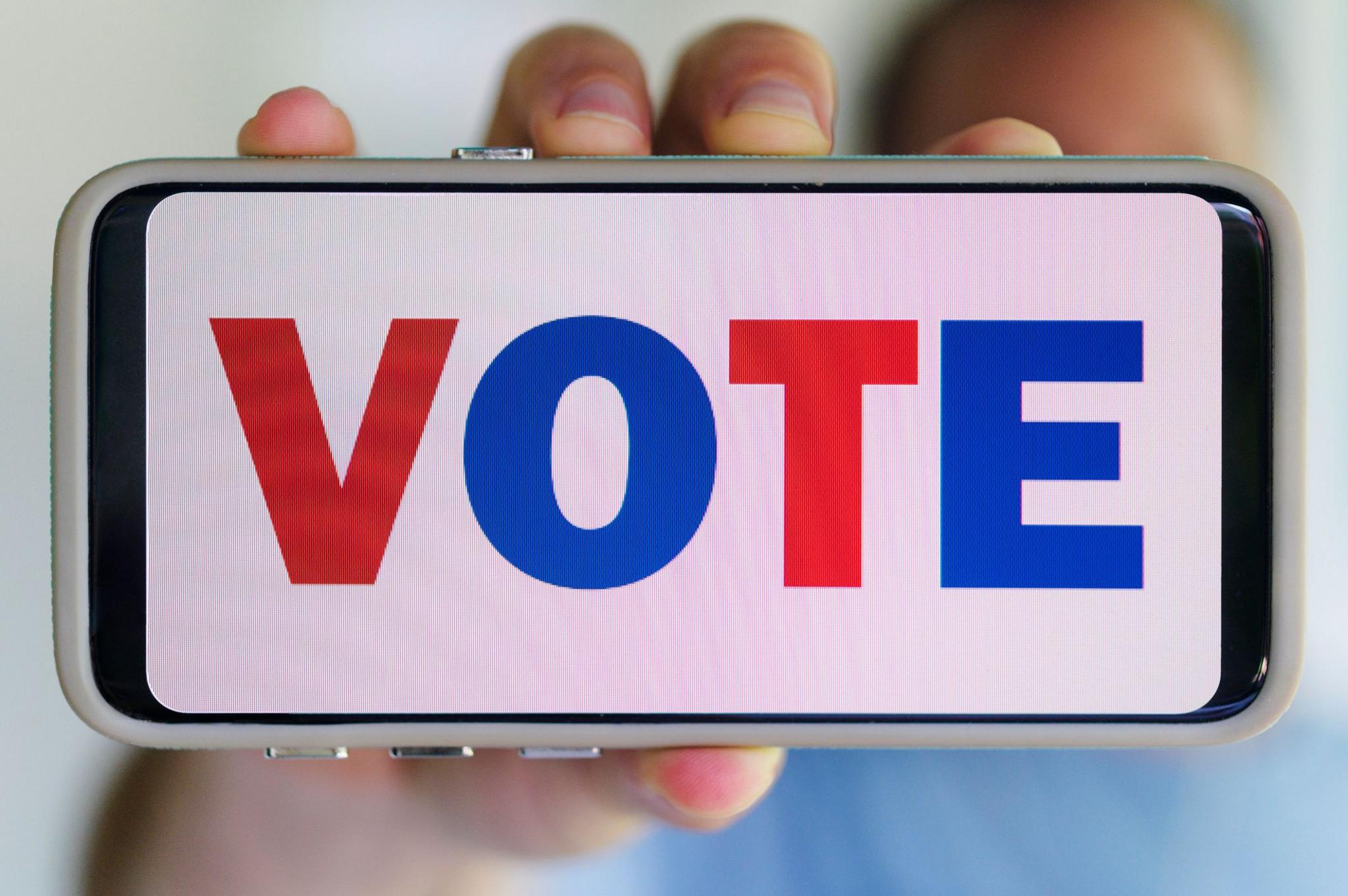
Pilot e-voting schemes in the UK concluded they facilitated voting but the security risk at the time was unacceptable
The head of MI6 said in 2017 a "stubby pencil and piece of paper" in the ballot box was more secure than any vote cast online.
Current levels of UK voter fraud are small-scale, external, but unverified online votes could carry a risk of large scale cyber-attacks.
A voter data cyber-attack in 2021 was linked by the UK government to China, with the prime minister calling the country "the greatest state-based challenge to our national security".
Prof Ryan said malware could be specifically targeted at changing online votes.
"Somebody could vote 10,000 times because they could affect 10,000 people's votes."
In the event of a disputed election result, he said: "People would likely find it very difficult to trust the result... with computers it’s very hard to see what’s happening behind the scenes."
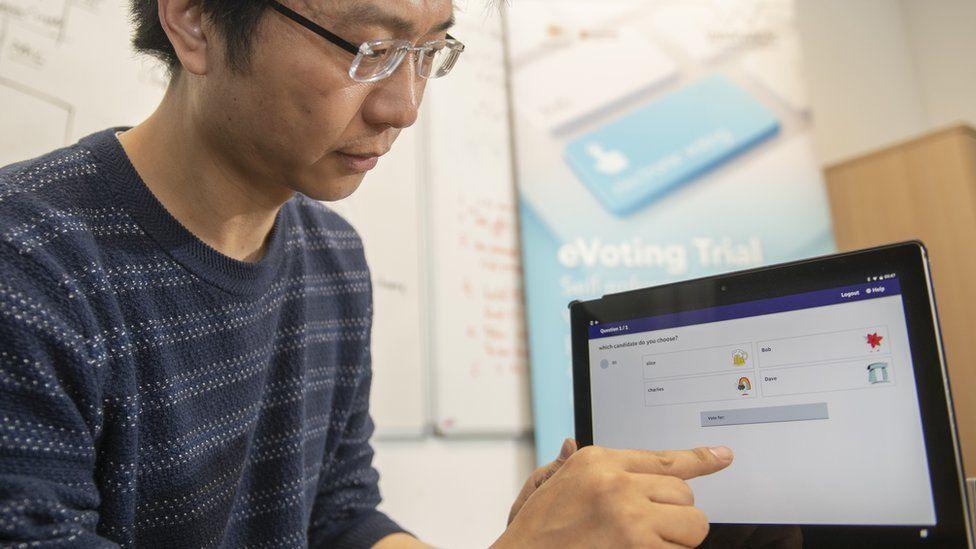
Prof Feng Hao is keen to run more e-voting trials in local council elections
UK electoral law does not currently permit e-voting and any changes to enable it would need to be introduced by the government and agreed by parliament.
The government told the BBC that it believes existing paper-based options provide high security benefits and it has no current plans to introduce an online option.
Despite the challenges, Prof Ryan believes e-voting could start to be used in small-scale UK elections within 10 to 20 years.
"I am hopeful we come up with systems that strike the right balance between transparency and opacity," he said.
"My intuition is... people would be more likely to vote," he added. "Running the election will certainly be cheaper."
Prof Hao thinks we will see remote voting alongside traditional ballots, but says electoral laws need to change to allow the kind of two-step verification used in online banking.
Voting more accessible
An Electoral Commission spokesperson said its research showed, external people were "generally happy" with current ways of voting, but it was important to consider improvements to make voting more accessible.
They added: "Any future consideration of the potential of online voting would need to take into account the nature and scale of the current implementation barriers to online voting.
"And an assessment of whether the benefits of voting online would be likely to outweigh the potential risks."
Follow BBC West Midlands on Facebook, external, X, external and Instagram, external. Send your story ideas to: newsonline.westmidlands@bbc.co.uk, external
- Published2 May 2019
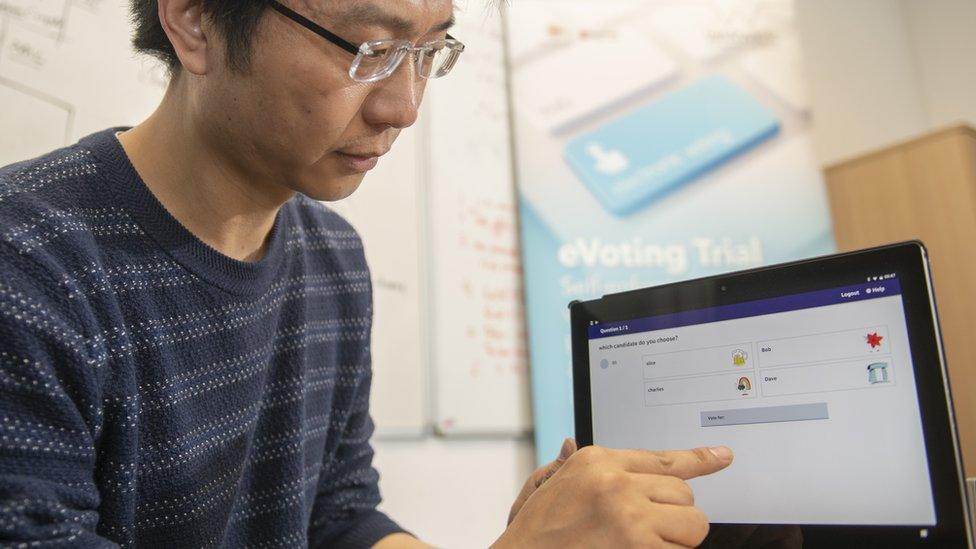
- Published30 May 2017
- Published29 April
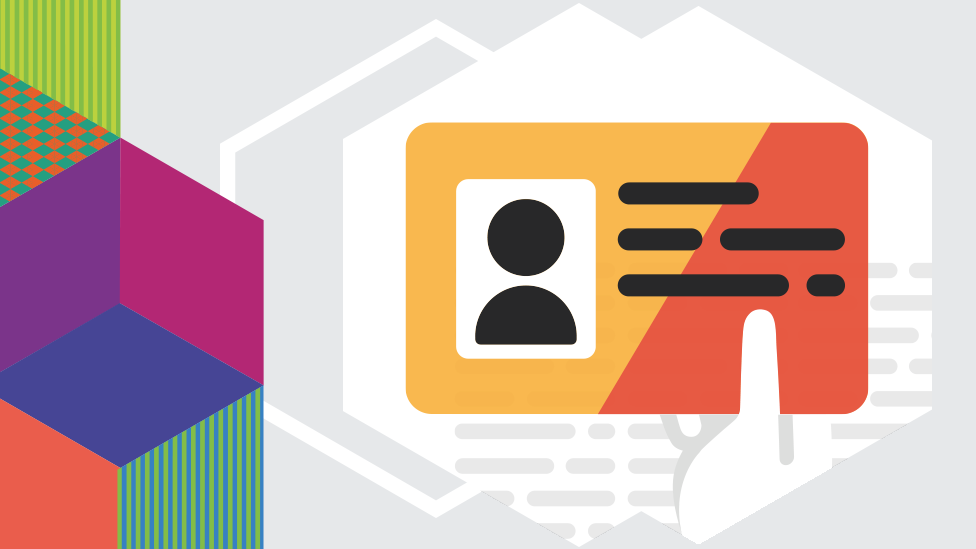
- Published5 September 2023
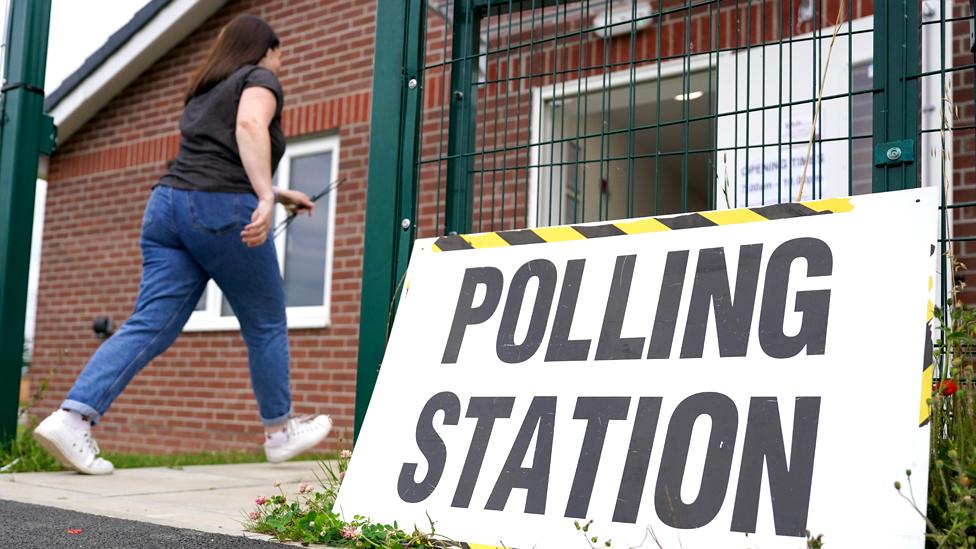
- Published25 March 2024
